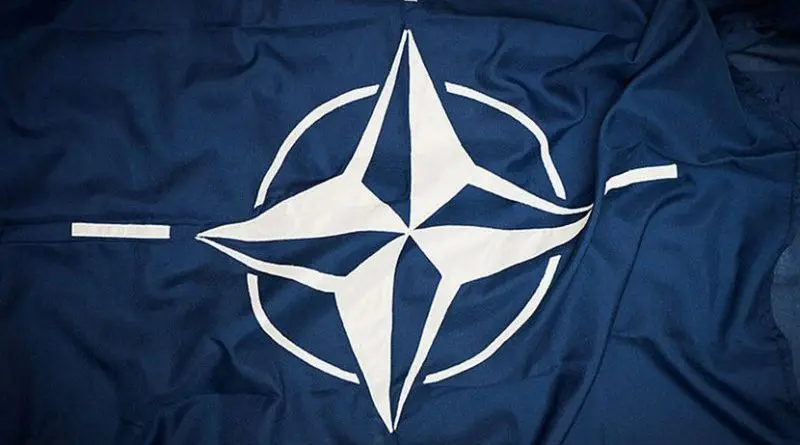
Recent developments in Syria and the ongoing war in Gaza serve as regular reminders of the importance of the Middle East to Western policymakers.
At a time when many in the West, particularly in the US, would prefer to reduce their engagement in the region and focus more on areas such as the Indo-Pacific, the geopolitical realities on the ground continue to prevent this shift from becoming a reality.
This is especially true for the North Atlantic Treaty Organization, which has understandably prioritized the territorial defense of Europe in the face of external aggression in recent years. Yet NATO has also maintained engagement with the Middle East.
It is clear why the organization cannot afford to ignore the region. Geography alone makes this impossible but the Middle East and Europe also share a host of security interests and overlapping challenges. These include terrorism, the humanitarian effects of mass migration, and concerns over nuclear proliferation. For these reasons, it makes strategic sense for NATO and countries in the Middle East to enhance their cooperation.
In 2004, NATO established the Istanbul Cooperation Initiative, which has served as the alliance’s primary platform for engagement with the Arab world. Qatar, the UAE, Bahrain, and Kuwait currently participate in the initiative, which formalizes regional cooperation between NATO and Gulf Cooperation Council countries, and has fostered high-level visits, joint training exercises and military education exchanges. NATO’s on-the-ground presence in the region is anchored by the ICI-NATO regional center in Kuwait.
In recent years, there has been an increase in senior-level engagement between NATO and Gulf states. Last month, for instance, the chairperson of the NATO Military Committee, Adm. Giuseppe Cavo Dragone, visited Kuwait for high-level discussions on NATO-Gulf cooperation.
In February, recently appointed NATO Secretary-General Mark Rutte visited Baghdad, his first visit to the region since taking office in October last year. During this trip, he reviewed NATO’s role in regional security through the work of the NATO Mission in Iraq. Established in October 2018 at the request of the Iraqi government, this mission consists of several hundred NATO troops who train Iraqi security forces to prevent the reemergence of Daesh. The mission represents the alliance’s most significant overseas operation today.
Despite this level of engagement, NATO has yet to fully grasp the strategic value of a wider deepening of relations with Gulf states, or the broader importance of the Middle East to European security. For example, in NATO’s 2022 Strategic Concept, a guiding document for the alliance, the Middle East was mentioned only in passing. The Istanbul Cooperation Initiative was not referenced at all. Even though 2024 marked the 20th anniversary of the initiative, NATO held no major events to commemorate this milestone. It again was barely mentioned in the final communique of NATO’s Washington summit last year.
Furthermore, a recent NATO-commissioned report on the expansion of engagement with the Global South offered little in terms of meaningful analysis or actionable recommendations for improving relations with the Middle East.
Fortunately, opportunities for expanded cooperation do still exist. NATO’s summit in the Netherlands next month presents an ideal occasion on which to bring the Middle East back into focus. With recent escalations in Syria and Gaza, the state of Middle East security serves as a reminder of the region’s importance to the transatlantic community.
One concrete step would be to convene a meeting of the Istanbul Cooperation Initiative during next month’s summit, preferably at the heads-of-state or government level, or at a minimum at the level of foreign ministers. Since the inception of the initiative, there has never been a senior-level meeting in parallel with a NATO summit. As the Middle East undergoes another round of geopolitical shifts, now is the time to correct that oversight.
NATO should also explore ways to assist any new, internationally recognized government in Syria with security sector reforms. In coordination with regional states, particularly those who participate in the initiative, NATO should consider whether a training mission akin to the one in Iraq could be established in Syria. In parallel, the alliance should also explore the possibility of engaging Syria through either the Istanbul Cooperation Initiative or NATO’s Mediterranean Dialogue, the latter of which is its main platform for engagement with countries in North Africa and the Levant.
Building on the momentum of US President Donald Trump’s recent visit to Saudi Arabia, NATO should explore the potential for deepening its relationship with Riyadh. The foundation for this already exists; Rutte’s predecessor as NATO chief, Jens Stoltenberg, made a historic first visit to Saudi Arabia in 2023. Since then, discussions have taken place about the formalization of ties between the alliance and the Kingdom.
Although Saudi authorities have so far opted not to join the Istanbul Cooperation Initiative, the time might be ripe to revisit the issue and find mutually beneficial ways to enhance collaboration.
In terms of tangible policy outcomes, two areas stand out for potentially closer NATO-Gulf cooperation: missile defense and maritime security. While NATO has no formal maritime security mandate in the Gulf, many of its member states participate in regional maritime task forces alongside Gulf states.
Regarding missile defense, the war in Ukraine and the widespread use of ballistic missiles and drones across the Middle East underscore the growing importance and complexity of integrated air and missile defense. Because missile defense is inherently non-aggressive, it should be a politically viable area for cooperation. And given that the threats posed by missiles and drones are unlikely to diminish, deeper collaboration in this area makes sense.
Next month’s summit offers a timely chance for NATO to revitalize the Istanbul Cooperation Initiative and strengthen its strategic ties with Gulf partners. Doing so would contribute meaningfully to the stability and security of both regions.
